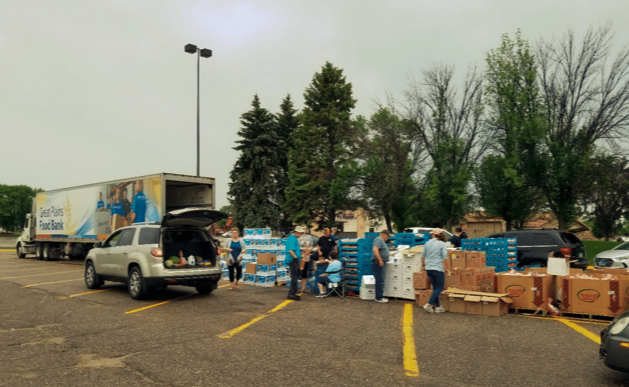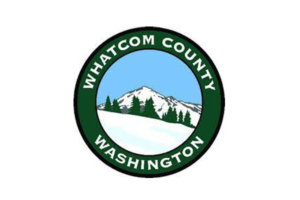The Great Plains Food Bank serves every county in North Dakota as well as western Minnesota, working with community partners to efficiently secure and direct resources and eradicate hunger in their communities. Their current operations include statewide distribution facilities based in Fargo and Bismarck, a fleet of refrigerated trucks, and several dozen staff supported by thousands of volunteers. In addition to providing food for local pantries, their programming includes a mobile food pantry that serves rural communities across the state and assisting individuals with enrollment in the Supplemental Nutrition Assistance Program (SNAP).
Their Challenge
Many eligible people, especially in remote areas, do not apply for SNAP because there is no grocery store nearby where they can use the benefits. Instead, with a rash of grocery closures in rural North Dakota, people find themselves driving great distances to stock up at a Walmart or other grocery store in larger communities. This limits their access to fresh food because trips are infrequent and they bear the full cost.
In carrying out its mission to end hunger through community partnerships, Great Plains Food Bank has a long history of developing creative solutions to fill gaps in the spirit of passion, service and innovation. Understanding the need for fresh foods in remote towns, and with experience under its belt running the mobile pantry, Great Plains Food Bank saw the potential for a mobile market to bring fresh, healthy food back into communities for people shopping in dignity, whether using SNAP benefits or paying in cash.
The Reinvestment Fund awarded Great Plains Food Bank a 2019 Healthy Food Financing Initiative Grant to explore the feasibility of the mobile market as a social enterprise.
Partnering with New Venture Advisors
To help the Great Plains Food Bank determine whether a mobile market would be a sustainable social venture without diverting funds from its core mission of eradicating food insecurity, New Venture Advisors (NVA) began by interviewing employees to gain an understanding of their extensive logistics throughout the state. NVA also spoke with peer food pantries that operate mobile markets under different conditions, such as in dense cities and in senior living communities, including Dare to Care in Louisville, Kentucky, and The Food Group in Minneapolis, Minnesota. This allowed us to develop an operating framework for how such a venture would operate in some of North Dakota’s most remote communities, including Cannon Ball and Fort Yates of the Standing Rock Reservation.
The operating framework identified the overall objective for the market, where it would operate and who it would serve, the pricing and revenue model, and how it would operate e.g. what it would sell, how it would source and manage inventory, hours of operation, staffing and logistics—and how Great Plains Food Bank would carry out these activities alongside its other programs. This gave insight into capacity limitations and how to deploy the food bank’s assets, staff, and knowledge to support a for-profit business.
With this in hand, it was possible for NVA to create a financial model that predicted how much the mobile market would need to sell in order to cover its costs—the breakeven point. This financial model allowed NVA to test several sensitivities that influence the viability of the venture, the most crucial of which is the cost of sourcing food.
With an aim to sell fresh and shelf-stable food sourced through the central food bank and purchased from farms and food makers in retail market locations, Great Plains Food Bank—and any other organization wishing to operate a mobile market—will have to look at food costs first in determining whether the venture will be able to operate at or above break even. Fortunately for Great Plains Food Bank, there are a few scenarios that the model predicts could be financially sustainable.
Moving Forward
NVA’s findings support the premise that even in the most remote and underserved areas of North Dakota, a mobile food market can be operationally and financially sustainable. However, certain conditions influencing sales and costs will be critical to ensure before launch.
Low food costs will need to be secured through partnerships with local retailers or negotiations for bulk purchases. Food cost sensitivities are not new for food banks: the benefit of these centralized structures is often to secure food at a lower price by purchasing at scale and using the negotiating muscle that a local community food pantry may lack. On the sales side, Great Plains Food Bank can work with local partners to ensure that when a mobile market arrives, the community will show up. These measures will help Great Plains Food Bank launch a successful pilot and move one step further toward its mission of ending hunger in all of North Dakota and western Minnesota.
Learn more about the Great Plains Food Bank on their website.
(Photo Courtesy of Great Plains Food Bank)



